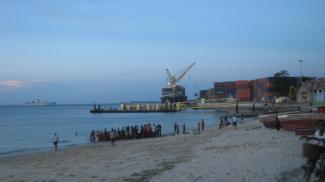Europe
Growing complexity

The aspirations of European trade policy are growing. The Global Europe strategy, which the European Commission published in 2006, emphasised bilateral trade talks with commercially meaningful countries. Earlier, the EU had relied on the multilateral WTO and restricted bilateral talks to negotiating Economic Partnership Agreements (EPAs) with member’ former colonies in Africa, the Caribbean and Pacific.
As David Kleimann of the European University Institute argues in his introduction to a collection of essays on the matter, the EU felt compelled to start bilateral trade talks because the WTO was not delivering the desired results. One reason is that the EU wants deals on topics that are anathema to many developing countries. Examples include competition law or public procurement.
According to Kleimann, two things have fundamentally changed since the WTO summit in Qatar in 2001:
- It has become obvious that the “pace of liberalisation around the globe” will not be determined multilaterally.
- Preferential trade agreements do not only serve to build ties with specific partners, but are “also a means of excluding competitors”.
Kleimann states that the USA and the EU aspire to form a Transatlantic Trade and Investment Partnership in order to regain clout at the global level. In Kleimann’s view, moreover, it is telling that the Transpacific Partnership, that Washington is interested in, would exclude China.
However, Kleimann doubts the EU will achieve much. He indicates several reasons:
- De facto cooperation between rich nations is already quite strong. There is little scope for fast progress because these nations have a long history of disagreeing on certain issues, such as genetically modified food. Vested interests have proved strong enough to block further integration in these areas, and they are likely to remain strong.
- Trade policy basically concerned tariffs and other border issues in the past, whereas the new issues affect domestic legislation and enforcement. Accordingly, reforms are more difficult.
- In talks with less-developed partners, the EU tends to try to do too many things at once. Liberalising trade and promoting development are compatible in the long run, but balancing “short-term commercial interests and long-term strategic interests” is a challenge.
The EPAs are a case in point. Talks proved much more difficult than expected. So far, only one such agreement has been finalised. In the e-book, Isabelle Ramdoo and Sanoussi Bilal of the Netherlands-based European Centre for Development Policy Management (ECDPM) suggest that the EU should learn several lessons from this experience, including the following:
- The EU sent mixed signals, so partners thought the main idea was to make existing preferential relationships WTO compatible whereas the EU wanted to move forward on trade.
- The EU underestimated how difficult it is for partners from regional organisations of developing countries to negotiate trade deals in view of poor capacities and the need to find agreement among one another.
- The EU neglected the fact that “deeper regional integration is a fundamentally endogenous process”, which can be supported, but not driven from outside.
In another essay, Fabiano de Andrade Correa of the International Development Law Organisation, discusses the principle of sustainable development in EU trade policy. It figures in the three bilateral trade deals that were concluded with Chile, South Korea and Central America in recent years. The scholar appreciates several things, for instance:
- Sustainable development is consistently cited as a common objective.
- Existing levels of social and environmental protection must be upheld.
- Sustainability impact assessments were carried out before the agreements were signed.
De Andrade admits that the agreements do not implement the sustainable-development principle stringently, but he considers the agreements good starting points for further developing international law on the matter.
Hans Dembowski








